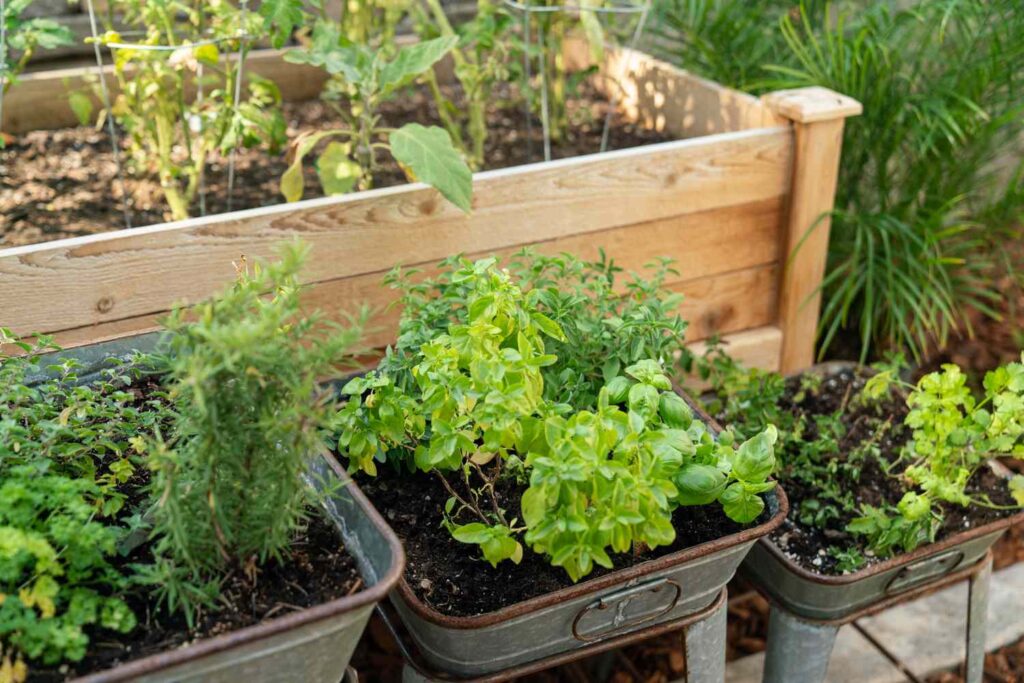Growing herbs of your own may be a satisfying and affordable way to enhance the taste of your food. Whether you’re a seasoned or inexperienced gardener, it’s both a sustainable and enjoyable hobby.
However, it’s more challenging than it sounds. While growing herbs you need to be careful about certain things. We’re here to grow your conscience about these.
Here are some of the tips and tricks for a successful herb garden.

Tip 1: Soil Preparation
You don’t need to discover the secrets of successful gardening for this. Soil preparation is pretty basic for every plant. Herbs are no different.
Herbs require a good number of nutrients to flourish. Hence, before planting the herbs it’s important to prepare the soil with the necessary amount of nutrients.
You should plant the herbs in organic matter such as aged manure or compost. And to ensure fertility you must ensure that the soil is free from any weeds or debris.
The best way to figure out which nutrients the soil lacks is by conducting a soil test. The soil test will help you figure out which nutrients to include in your soil.
Tip 2: Right Location
Finding the ideal place is also a crucial step toward creating a successful herb garden. It is preferable to select a location that gets a minimum of six hours of direct sunshine every day.
Because herbs require a lot of sunlight to flourish. If your garden is at a place where it is mostly shady you can grow shade-tolerant herbs like mint or chives.
But the best practice is to ensure direct sunlight to your plants for at least 6 hours.
Tip 3: Regular Maintenance
Once you’ve started the garden you need regular maintenance for the best yield. The planting and maintenance process for each herb is very distinct from one another.
For this reason, the positioning of each plant in the garden is very important. So that you can care for each type of herb separately.
Regular maintenance also includes regular watering of your herbs. As well all pruning your herb, to encourage bushy growth and prevent them from becoming too leggy.
To stop the spread of pests and diseases, remove any sick or damaged plant material right away.
Tip 4: Consider Companion Planting
Using the practice of companion planting, several plants are cultivated side by side for mutual benefit. Planting herbs with various growth tendencies together in herb gardens will help make the most of available space. It’ll also help provide a more diversified garden.
A richer garden may be achieved, for instance, by combining trailing herbs like thyme or oregano with erect herbs like rosemary or sage.
Additionally, you may naturally ward against pests by growing pest-repelling herbs alongside other vulnerable plants, like basil or garlic.
For a unique addition to your herb garden, consider venturing into Chijimisai herb growing, exploring a Japanese culinary treasure that brings both flavor and cultural richness to your home-grown collection.
Conclusion
In conclusion, cultivating your own herb garden may be a rewarding and pleasurable pastime. Which offers a variety of advantages, from boosting the flavor of your culinary creations to benefiting your mental.
You can grow a healthy herb garden that will offer you an abundance of savory and aromatic herbs all year long.
For that, you just need to carefully choose the perfect place and prepare the soil. As well as select the right plants, and give them the required care.
